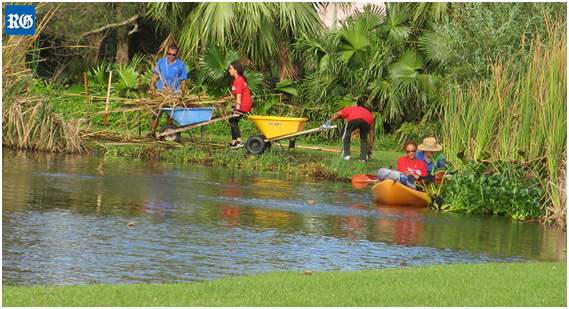Recent News
LOM gives away $25,000 to mark 25 yearsMonday, January 29, 2018
LOM Financial gave away $25,000 to charity at an event to mark its 25th anniversary.
Flying visit for rare bird
Monday, January 22, 2018
One of the largest plunge divers in the world made a rare and spectacular appearance off the North Shore.
Island ponds given overhaul by BZS
Tuesday, January 16, 2018
Two ponds have been cleaned up courtesy of an island conservation programme.
Cahow breeding season set to break records
Monday, January 15, 2018
This year’s cahow breeding season could be a record breaker, experts predicted yesterday.
“Andy” Is Now The Longest Tracked Tiger Shark
Friday, January 12, 2018
Andy — a tiger shark tagged in Bermuda by scientists from Nova Southeastern University’s [NSU] Guy Harvey Research Institute [GHRI] in 2014 — is now the longest tracked tiger shark on record.
About
GovernanceAbout Us
Newsletter
Latest News
Gift & Bookstore
Contact
General Inquiries
info@bzs.bm
Latest News
All the latest updates and news from the Bermuda Aquarium, Museum, and Zoo, one of Bermuda's leading visitor attractions!
Jonathan Bell
Published Jan 16, 2018 at 8:00 am (Updated Jan 16, 2018 at 6:41 am)

HSBC volunteers help a Bermuda Zoological society team clean up
Cloverdale Pond in Smith's (Photograph supplied)
Two ponds have been cleaned up courtesy of an island conservation programme.
Cloverdale Pond in Smith’s and Southampton’s Evan’s Pond, a refuge for endangered species, were improved through the Bermuda Zoological Society’s wetlands remediation programme.
The scheme, which became the HSBC global water programme for Bermuda in 2014, was designed to remove toxic petroleum compounds from ponds.
The build-up of the poisonous hydrocarbons is a threat to the island’s two endemic killifish species, as well as native diamondback terrapins, which are a protected species.
The compounds, which come from oil, water runoff and vehicle exhausts, can be broken down by bacteria when the pond sediments are aerated.
The two-year grant from HSBC allowed the proposal to be tested in the field.
Volunteers also took part, with help from the Department of Environment and Natural Resources.
The BZS said Cloverdale was chosen first because of its small size, its “known severe effects on wildlife” and the absence of protected species in the water.
Evan’s Pond was selected as the second test site because of its small population of killifish.
The ponds were divided into sections and aerated for six to eight hours a day with solar powered compressors.
Hydrocarbon levels saw a major reduction over the course of a year.
The next site for remediation is the South Pond at the Mid Ocean golf course, where the hatching of diamondback terrapins has been hampered by pollution.


